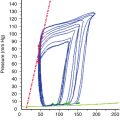Recent Posts
- Why Mixing Methamphetamine With Other Drugs Raises Overdose Risk
- Will I Feel Like Myself Again After Menopause?
- Chance and Choice: Living With Uncertainty in Clinical Practice
- EMDR Trauma Treatment Explained in Simple Terms
- STI Test Perth: A Complete Guide to Testing, Timing, Privacy, and Peace of Mind
Categories
- Allergy and Immunology
- Anesthesiology
- Basic Science
- Cardiothoracic Surgery
- Cardiovascular
- Complementary Medicine
- Critical Care Medicine
- Dermatology
- Emergency Medicine
- Endocrinology, Diabetes and Metabolism
- Gastroenterology and Hepatology
- Hematology, Oncology and Palliative Medicine
- Internal Medicine
- Medical Education
- Neonatal – Perinatal Medicine
- Nephrology
- Neurology
- Neurosurgery
- Nursing & Midwifery & Medical Assistant
- Obstetrics & Gynecology
- Opthalmology
- Orthopaedics
- Otolaryngology
- Pathology
- Pediatrics
- Physical Medicine and Rehabilitation
- Plastic Reconstructive Surgery
- Psychiatry
- Pulmolory and Respiratory
- Radiology
- Rheumatology
- Sleep Medicine
- Surgery
- Test
Home » Renal Effects of the Inhalation Agents
Renal Effects of the Inhalation Agents
Published on 07/02/2015 by admin
Filed under Anesthesiology
Last modified 22/04/2025
Print this page




